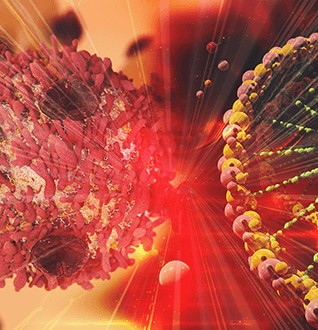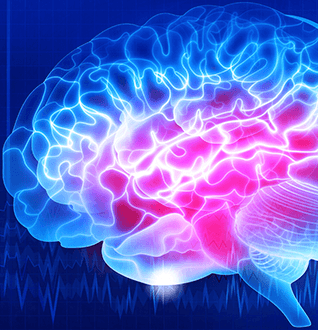The areas of research include genomic analysis of pancreatic cancers, multiscale digital neuroanatomy with an engineering research and development of drugs that target and treat these non-communicable diseases lile cancer, diabetes, stroke and cardiovascular diseases.

Cancer Genomics & Molecular Therapeutics
Pancreatic cancer [Pancreatic ductal adenocarcinoma (PDAC)] is an important public health problem and is the fourth leading cause of cancer death worldwide with little improvement in outcomes despite decades of research. It is among the cancers with very poor survival rates. Due to the lack of non-invasive sensitive genomic biomarkers, result in diagnosis often after the cancer has advanced
At present, there are no specific successful non-invasive detection methods for PDAC. We propose to carry out the following:
Phase 1:
- Comprehensive, integrated genomic analysis of pancreatic cancers with matched normal tissue samples from Indian cohorts using a combination of whole-genome exome and RNA sequencing.
- To identify specific biomarkers for early detection and novel drug targets to design better therapeutics
Phase 2:
- Comprehensive genomic analysis of pediatric leukemia. We will perform whole-genome, exome and RNA sequencing of longitudinally collected samples. This will help to identify biomarkers (genetic mutation, gene fusion, and differential gene expression) and novel targets specific to the Indian population for better management at a very early stage.
- Development and characterization of pancreatic cancer preclinical model such as organoids. This model will help to understand the PDAC pathogenesis and to drug screening for the identification of patient-specific drugs towards personalized treatment.
- Development of cancer genome database specific to India
Principal Investigator: Mahalingam S.

Digital Neuroanatomy
How do human brains develop? What distinguishes the brains of individuals with major neurological disorders, including neurodegenerative disorders, and neurotypical controls? How did the cerebral cortex, the seat of cognitive function in the brain, evolve? These are the fundamental scientific and medical questions that will be addressed by the proposed CoE in Multiscale Digital Neuroanatomy. This goal will be achieved by creating the CoE for multiscale digital neuroanatomy with an engineering research and education program geared towards mapping the circuits and molecular architecture of postmortem brains of humans and other species. The CoE will operate high-throughput experimental computational pipelines to generate unique and visible data set resources of significant scientific and medical value to both international and national researchers; it is expected to result in highly cited publications.
- Decipher the architecture of the human brain at unprecedented molecular and cellular resolution, by developing an automated high-throughput experimental-computational pipeline; and
- Use the degitized archetechture (atlas) of human and other species brains to answer fundamental, unresolved questins about
- human brain development,
- brain evolution, and
- environmental causes of neurological disease.
Principal Investigator: Manikandan Narayanan

Molecular Medicine
Non-communicable diseases including cancer, cardiovascular diseases (CVDs), diabetes and stroke contribute to 60% of mortality in India.
Worldwide, the Head and Neck cancer is the sixth most common form of cancer, with an alarming increase in Asian countries. In India, 83% of total CVD burden is due to coronary artery disease, heart failure and stroke. One in four Indian adults are reported to have high blood pressure or hypertension that increase occurrence of stroke, a leading cause of death ranking next in incidence to heart attacks and cancer. This proposal is designed to develop drugs that target and treat these non-communicable diseases.
Principal Investigator: Nitish R. Mahapatra

